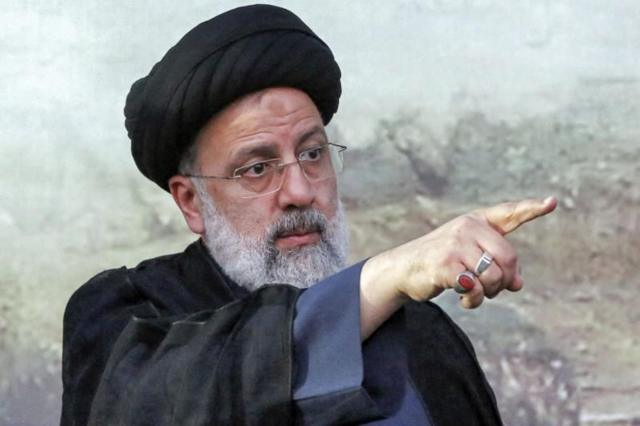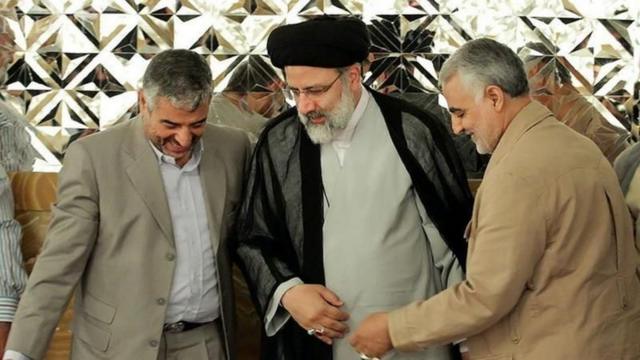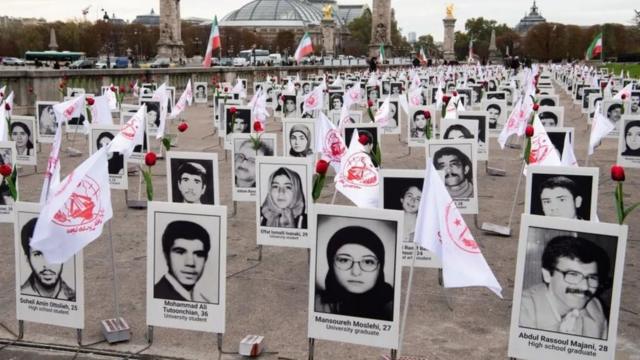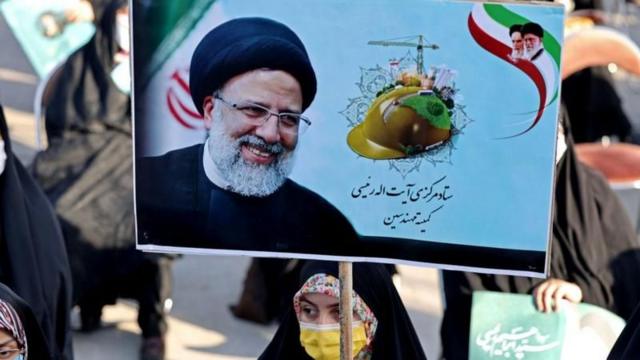Ebrahim Raisi was a hardline religious leader close to Iran’s Supreme Leader Ayatollah Ali Khamenei, who consolidated conservative control of every part of the Islamic Republic after being elected president in 2021. He succeeded Hassan Rouhani as president of Iran.
The 63-year-old former chief justice won the presidential election by a landslide. However, many of the dominant moderate and reformist candidates were banned from the election and the majority of voters stayed away from the polls.
At such a time Mr. took the oath of office of the President. At the time, Raisi faced several challenges, including severe economic problems, rising regional tensions and negotiations with world powers to revive the nuclear deal.
Since Raisi took office, Iran has witnessed several important events, including anti-government protests that spread across Iran in 2022, and the ongoing war in Gaza between Israel and the Iranian-backed Palestinian group Hamas. But it was during the ongoing war in Gaza that the shadow war between Iran and Israel came to light.
On the other hand, there are allegations of his role in carrying out mass executions of political prisoners in the 1980s. Because of this, Ebrahim Raisi has to face constant criticism from human rights activists. Many citizens of Iran have also come against him in this regard.
His career is quite eventful. He has long experience in judicial field. He achieved success at a very young age. But the controversy did not leave him behind. He has come under criticism for everything from human rights violations to his hard-line approach. Let’s take a look at the most notable events of his life.

IMAGE SOURCE,GETTY IMAGES
personal life
Ebrahim Raisi was born in 1960 in Mashhad, Iran’s second largest city. He lost his father when he was only five years old. Ebrahim Raisi’s father was also a cleric.
According to Shia religious tradition, he was seen wearing a black turban like the descendants of the Prophet of Islam. Following his father’s footsteps, Mr. ricey
He received a master’s degree in international law. He obtained his PhD in Jurisprudence and Fundamentals of Law with specialization in Private Law from Shaheed Motahari University.
While a student there, he took part in protests against the Western-backed Shah. Finally, in 1979, the Shah’s regime fell through the Islamic Revolution led by Ayatollah Ruhullah Khomeini.
He was seen in active roles from his student days. He was also involved in the Western-backed protests against the Shah.
He joined the judiciary after the Islamic revolution in Iran. Served as prosecutor in several cities while training under Ayatollah Khamenei. In 1981, Mr. took office as the president of Iran. Khamenei
Mr. Little is known about Raisi’s personal life. His wife Jameel is a teacher at Shahid Behesti University in Tehran, and they have two children.
His father-in-law is Ayatollah Ahmad Alamolhoda. He is also a radical religious leader and leads Jumma prayers in the city of Mashhad.

IMAGE SOURCE,NBNA
40 years of judicial experience
Mr. had long experience in judicial field. of Raisi. All the years after the revolution, he has been working in judicial positions. Not only that, when Astan Quds Rajavi took over from the Office of the General Prosecutor three years ago, he was also the counsel of the Special Clerical Court.
Despite touting his tenure as Chief Justice as ‘successful’ during his election debates and campaigns, many feel that the judiciary has not changed much during his tenure. In particular, the film did not differ much from its predecessors in terms of human rights.
His tenure was marked by the arrest and sentencing of human rights activists and political activists, the continued detention of environmental activists, and the execution of several individuals, including Naveed Afkari and Ruhullah Jam.
In addition to this, incidents like shutting down several websites and messengers, arresting journalists also allegedly happened during his tenure.
Incidentally, in one of his statements, Ebrahim Raisi admitted to being responsible for all the duties he performed in the Judiciary for more than forty years. However, many feel that convincing the public is not an easy task given the long list of allegations against him.

IMAGE SOURCE,AFP
Joining the ‘assassin committee’
He achieved success in judicial field at a very young age. Ibrahim Raisi was appointed Deputy Counsel. A secret tribunal was convened in 1988, known as the ‘Assassins Committee’. Ibrahim Raisi was one of the four judges of that tribunal. He was a part of that tribunal when he was the Deputy Consul of Tehran.
The tribunal was set up to ‘re-trial’ thousands of prisoners already serving jail terms for political activities. Most of those sentenced were members of the leftist opposition group Mujahedin-e Khalq (MEK), also known as the People’s Mujahedin Organization of Iran (PMOI).
The exact number of people sentenced to death at the tribunal is not known, but according to human rights groups, about 5,000 men and women were executed and given mass graves. The graves are not marked separately. This incident is considered a violation of human rights.
Leaders of the Islamic Republic do not rule out executions, but they do not want to discuss the cases separately. They do not want to talk about its legal aspects.
Although Mr. has always denied his role in this death sentence. ricey However, at the same time, they have also claimed that they have been justified due to Ayatollah Khomeini’s fatwa or religious decree.
In 2016 Mr. An audio tape of a conversation between Raisi, some members of the judiciary and the then Deputy Supreme Leader Ayatollah Hossain Ali Montazari (1922–2009) was leaked.
On the audio tape, Montajeri can be heard describing the execution as ‘the greatest crime in the history of the Islamic Republic’. A year later Ayatollah Hossein Ali Montazari lost his position as Khomeini’s designated successor and Mr. Ayatollah Khamenei became supreme leader after Khomeini’s death.
Asked about his role in mass executions in 2021, Raisi told reporters: “If a judge, a lawyer protects people’s safety, it should be appreciated … I’m proud to have protected human rights in all the positions I’ve held.” .”
Astan-e Quds-e Rajavi’s duty
Mr. also served as the head of the state inspection agency. ricey Appointed as the first deputy head of Iran’s Judiciary and in 2014, was appointed as the Consul General (Prosecutor General) of Iran.
Two years later, Ayatollah Khamenei handed over all the responsibilities of looking after Astan-i Quds-i Rajavi, the most important and wealthy religious institution in Iran. In Raisi’s hand.
This religious institution maintains the dargah of the eighth Shia Imam Raza in Mashhad.
It is also responsible for managing various related charities and other organizations.
According to US data, this organization is responsible for managing a large economic activity, including construction, agriculture, electricity, telecommunications and financial systems.
Presidential elections and debates about him
In 2017, Mr. ricey However, he did not win that election. The winner was religious leader Hassan Rouhani who won an absolute majority for a second term with 57% of the vote in the first round. Ebrahim Raisi, who presented himself as a fighter against corruption, came second with 38% of the vote.
Mr. against him. Rouhani alleged that despite being the deputy head of the judiciary, he did almost nothing to take the corruption case forward.
However, in the presidential election Mr. For Rouhani, the defeat did not tarnish his image. In 2019, Ayatollah Khamenei appointed him to the powerful position of the country’s judiciary.
The following week he was elected Deputy Chairman of the Assembly of Experts. The next supreme leader of the country is elected by this council consisting of 88 religious leaders.
During his tenure as Chief Justice some reforms were made in the judiciary. This is claimed to have reduced the number of death sentences and the number of death sentences for illegal drug offences.
Although statistics show that Iran is still second only to China in terms of executions.
Not only that, the judiciary has joined hands with the security department to suppress dissidents. They have also jointly filed charges of espionage against Iranians who hold dual citizenships and have permanent residence permits abroad.
The then US President Donald Trump imposed sanctions on him in 2019 due to allegations of human rights violations. Mr. The list of human rights violations against Raisi includes the execution of individuals who were minors at the time of the alleged crimes.
He is also accused of being involved in the violent suppression of the opposition Green Movement protests after the disputed presidential election in 2009.
While announcing himself as a candidate for the 2021 presidential election, he claimed to have ‘come on an independent platform to bring about changes in the executive management of the country and fight against poverty, corruption, humiliation and discrimination’.
The electoral landscape changed rapidly when the hard-line Guardian Council disqualified several prominent moderate and reformist candidates. Dissidents and some reformists called on voters to boycott the elections. Their complaint was Mr. The whole thing is orchestrated to ensure that Raisi doesn’t face any major competition.
He could secure victory by getting 62% of the votes in the first round. But the voter turnout in that election was just under 49 percent, the lowest on record for a presidential election since the 1979 revolution.
When he began his four-year term as president in August that year, he pledged to “support any diplomatic plan” to “solve the country’s problems” and “economic progress” to lift sanctions.
He was referring to talks on the 2015 deal to limit Iran’s nuclear program. For a long time, Iran has not received any positive answer about this agreement. Iran has since retaliated by increasingly violating sanctions.
Raisi vowed to maintain good relations with neighboring countries as well as protect their regional activities and described themselves as a ‘stability-creating force’.
Mr. in the discussion. Despite Rice’s tough stance, a deal with the United States to revive the nuclear deal in August 2022 was said to be likely. However, it was not possible due to the situation in Iran at that time.
Anti-government protests
In September of that year, the Islamic Republic erupted in mass protests demanding the end of religious rule.
The death of Mahsa Amini, a young woman arrested by police in Tehran for not wearing hijab ‘properly’, gave birth to a movement called ‘Women, Life, Freedom’. Although authorities denied ill-treatment of the young woman, Mahsa Amini “died as a result of physical torture,” according to a United Nations investigation.
Protesters were suppressed by force. Although the UN mission did not disclose the official number of casualties in the incident, according to reliable figures, 551 protesters were killed by security forces. Most of them died of gunshot wounds. On the other hand, the government claims that 75 members of the security forces were killed.
More than 20,000 protesters were arrested and nine youths were executed. A UN investigation later revealed that the sentence was based on a confession extracted under torture.
Although the protests were eventually quelled, widespread dissatisfaction with the hijab law continued. Parliament of Iran and Mr. Many women stopped covering their hair in public in response to the problem Ricey sought to address with the new law.

IMAGE SOURCE,ATTA KENARE/AFP
Regional tension
In March 2023, seven years after severing diplomatic ties, the Raisi government agreed to a tentative accord with Iran’s bitter rival, regional Sunni power Saudi Arabia.
But regional tensions rose when Hamas launched an unprecedented cross-border attack in southern Israel in October of that year, prompting Israel to launch a massive military operation in Gaza in response.
At the same time, Iran’s network of allied armed groups and proxy groups active across the Middle East—including Lebanon’s Hezbollah, Yemen’s Houthis, and various militias in Iraq and Syria—have significantly stepped up their attacks against Israel in solidarity with the Palestinians.
Fears that the escalation could trigger a regional war intensified in April when Iran launched its first direct military attack on Israel.
He supported the decision to launch more than three hundred drones and missiles at Israel in retaliation for the deadly attack on the Iranian consulate in Syria. ricey All missiles were shot down by Israel, Western allies and Arab allies. An airfield in southern Israel, however, suffered little damage at the time.
In response, Israel launched a missile attack on an Iranian airbase. Mr. claimed that the attack did not upset his government. ricey
During the inauguration of a dam in northwestern Iran on Sunday, Mr. Raisi said, ‘Palestine is the first issue of the Muslim world’.